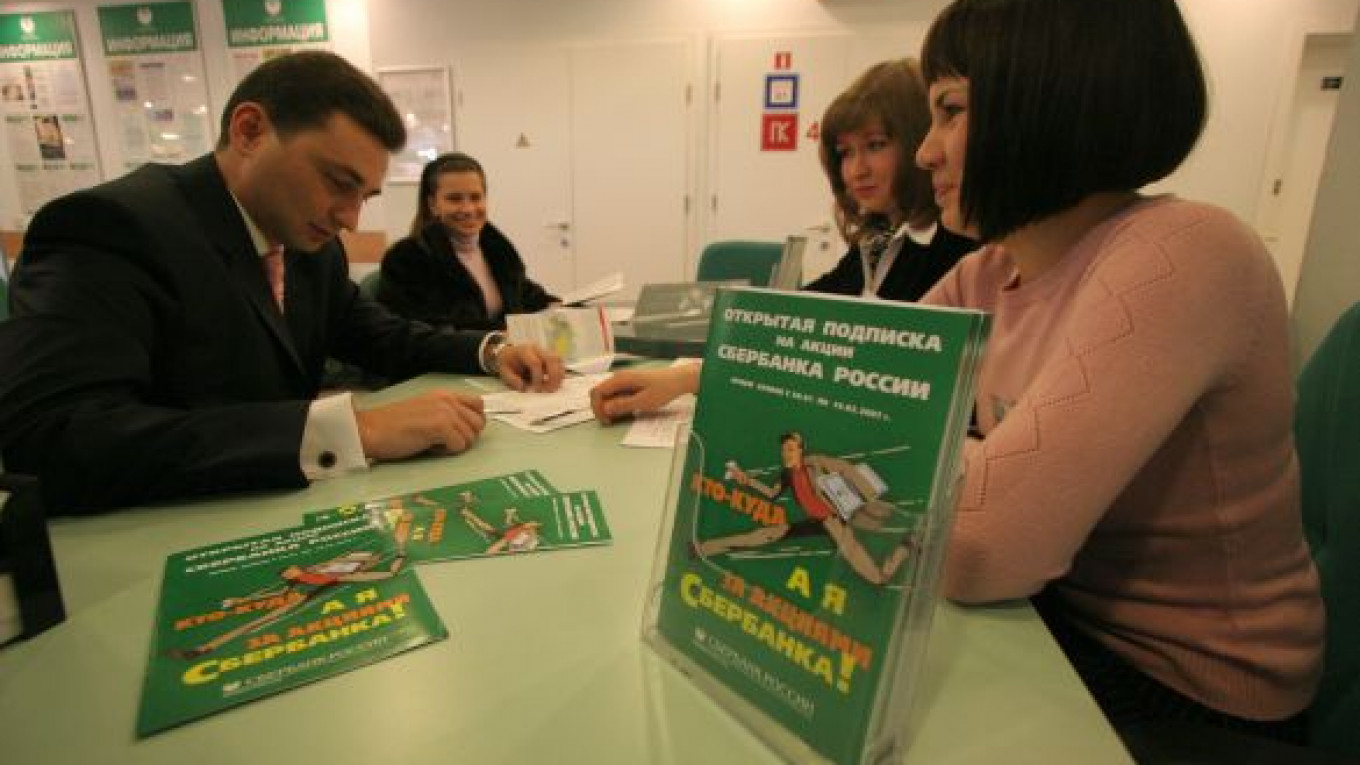The government's plan to sell $29 billion in state assets puts meat on the Kremlin's drive to lure investment and slash the budget deficit, but much will depend on how the sales are implemented, investors said Monday.
If approved by Prime Minister Vladimir Putin, Russia's most ambitious asset sale plan since the rigged privatizations of the 1990s could help President Dmitry Medvedev plug a hole in the budget ahead of the 2012 presidential election.
Finance Ministry sources said Saturday that minority stakes in 10 firms — including Rosneft, VTB and Transneft — would be sold off.
"The whole point about privatization programs is that they never happen. So what is important here is whether anything happens at all — something or nothing," said Christopher Granville, a Russia analyst at London-based emerging market investment research firm Trusted Sources.
"This initiative by the Finance Ministry suggests that at least something will happen," he said.
Ministry sources said Saturday that the asset sale idea had been discussed and judged realistic at a preliminary meeting chaired by Putin.
A Finance Ministry spokesman on Monday confirmed that a shortlist of companies had been drawn up but gave no figures and said no final decision had yet been made on the sales. It was also unclear whether the sales would involve foreign investors, or be through open stock market tenders or targeted deals.
The plans have also been devised to ensure that the state will keep control over major companies, a step that could ensure support from many of the powerful clans within the Kremlin that are eager for state control of assets deemed strategic.
The MICEX Index rose 1.2 percent on Monday. Transneft shares rose 7.2 percent and Rosneft by 3.4 percent.
Investors said the asset sale plan offered the government an attractive alternative to higher taxation in its battle to reduce budget deficits ahead of the 2012 presidential election.
The government wants to cut its budget deficit to 4 percent of gross domestic product in 2011 and 2.9 percent in 2012 from about 5 percent — or $80 billion — this year. Russian officials say they want to balance the budget by 2015.
Moscow has huge reserves built up over years of high oil prices and can afford to cover the deficit. But the finance ministry is using the debate over the shortfall to seek to advance market and fiscal reforms while times are good.
"Russia is dealing with a budget deficit this year and next year. The privatization plan is one way of dealing with the budget deficit," said Kevin Dougherty, a fund manager at Pharos Asset Management.
"This is a genuine attempt to broaden the investor profile in Russia," he said.
Medvedev, Putin's hand-picked successor, says he wants more foreign investment to upgrade the country's aging Soviet infrastructure and fuel growth after the crisis hammered Russia's energy-dependent economy.
A Message from The Moscow Times:
Dear readers,
We are facing unprecedented challenges. Russia's Prosecutor General's Office has designated The Moscow Times as an "undesirable" organization, criminalizing our work and putting our staff at risk of prosecution. This follows our earlier unjust labeling as a "foreign agent."
These actions are direct attempts to silence independent journalism in Russia. The authorities claim our work "discredits the decisions of the Russian leadership." We see things differently: we strive to provide accurate, unbiased reporting on Russia.
We, the journalists of The Moscow Times, refuse to be silenced. But to continue our work, we need your help.
Your support, no matter how small, makes a world of difference. If you can, please support us monthly starting from just $2. It's quick to set up, and every contribution makes a significant impact.
By supporting The Moscow Times, you're defending open, independent journalism in the face of repression. Thank you for standing with us.
Remind me later.






